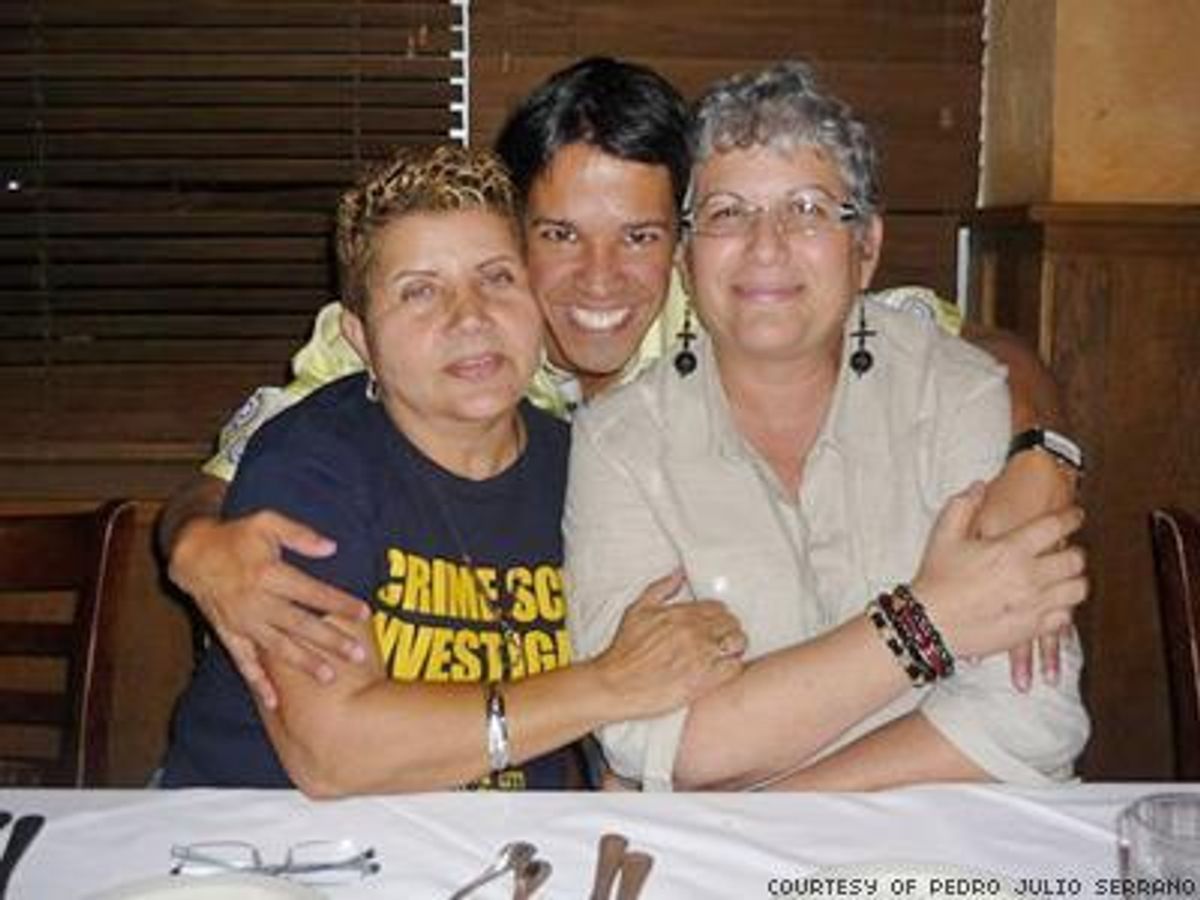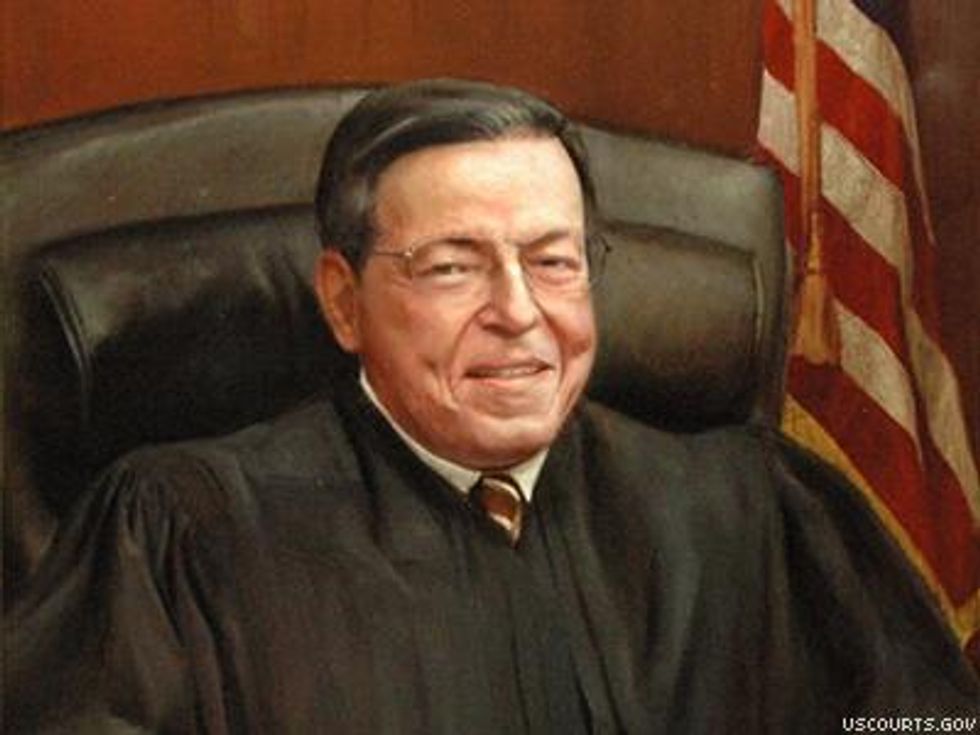A federal judge in Puerto Rico has upheld the U.S. territory's ban on same-sex marriage, going against the trend of pro-equality rulings over the past year.
U.S. District Judge Juan Perez-Gimenez issued the ruling Tuesday, citing a four-decade-old Supreme Court action and even raising the specter of incest and polygamy to argue against marriage equality, the Washington Blade reports.
"Because no right to same-gender marriage emanates from the Constitution, the Commonwealth of Puerto Rico should not be compelled to recognize such unions," Perez-Gimenez wrote in his 21-page decision. "Instead, Puerto Rico, acting through its legislature, remains free to shape its own marriage policy. In a system of limited constitutional self-government such as ours, this is the prudent outcome. The people and their elected representatives should debate the wisdom of redefining marriage. Judges should not."
As precedent for upholding the ban, Perez-Gimenez cited Baker v. Nelson, a 1972 case out of Minnesota seeking marriage equality, which the Supreme Court refused to hear on the basis that there was no matter of federal law in question.
More recent decisions from the high court, such as last summer's ruling striking down a key portion of the Defense of Marriage Act in Windsor v. U.S., do not "imply that Baker is no longer binding authority," the judge wrote. Perez-Gimenez also said marriage between opposite-sex couples "is the fundamental unit of the political order," and he criticized courts that have ruled in favor of marriage rights for same-sex couples.
"In their ingenuity and imagination they have constructed a seemingly comprehensive legal structure for this new form of marriage," he wrote. "And yet what is lacking and unaccounted for remains: are laws barring polygamy, or, say the marriage of fathers and daughters, now of doubtful validity?"
 Perez-Gimenez (pictured right) is only the second federal judge to rule against marriage equality since the Windsor decision, the other being a U.S. district judge in Louisiana. A judge in a state court in Tennessee also issued an anti-equality ruling. In contrast, there have been more than 40 pro-equality rulings in federal and state courts since then, according to the advocacy group Freedom to Marry.
Perez-Gimenez (pictured right) is only the second federal judge to rule against marriage equality since the Windsor decision, the other being a U.S. district judge in Louisiana. A judge in a state court in Tennessee also issued an anti-equality ruling. In contrast, there have been more than 40 pro-equality rulings in federal and state courts since then, according to the advocacy group Freedom to Marry.
The Puerto Rico plaintiffs will appeal Perez-Gimenez's decision, Lambda Legal staff attorney Omar Gonzalez-Pagan told the Blade. "The court's ruling directly conflicts with the wave of recent decisions finding these marriage bans unconstitutional and perpetuates the discrimination and harm done to same-sex Puerto Rican couples and their families," he said. "It defies the unmistakable import of the Windsor decision and flies in the face of the blizzard of rulings of the last year, the reasoned rulings of the Courts of Appeals for the Fourth, Seventh, Ninth, and 10th Circuits, and the decision by the U.S. Supreme Court let stand the rulings striking down five bans similar to Puerto Rico's. One struggles to understand how this judge came to a different conclusion."


 Perez-Gimenez (pictured right) is only the second federal judge to rule against marriage equality since the Windsor decision, the other being a
Perez-Gimenez (pictured right) is only the second federal judge to rule against marriage equality since the Windsor decision, the other being a 















































































Viral post saying Republicans 'have two daddies now' has MAGA hot and bothered